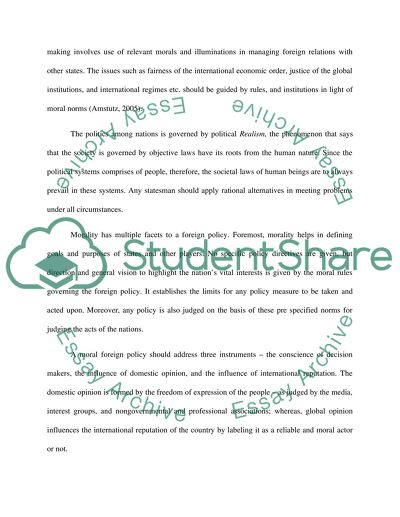Cite this document
(“Morality of a Foreign Policy Essay Example | Topics and Well Written Essays - 1750 words”, n.d.)
Morality of a Foreign Policy Essay Example | Topics and Well Written Essays - 1750 words. Retrieved from https://studentshare.org/politics/1501783-morality-of-a-foreign-policy
Morality of a Foreign Policy Essay Example | Topics and Well Written Essays - 1750 words. Retrieved from https://studentshare.org/politics/1501783-morality-of-a-foreign-policy
(Morality of a Foreign Policy Essay Example | Topics and Well Written Essays - 1750 Words)
Morality of a Foreign Policy Essay Example | Topics and Well Written Essays - 1750 Words. https://studentshare.org/politics/1501783-morality-of-a-foreign-policy.
Morality of a Foreign Policy Essay Example | Topics and Well Written Essays - 1750 Words. https://studentshare.org/politics/1501783-morality-of-a-foreign-policy.
“Morality of a Foreign Policy Essay Example | Topics and Well Written Essays - 1750 Words”, n.d. https://studentshare.org/politics/1501783-morality-of-a-foreign-policy.


